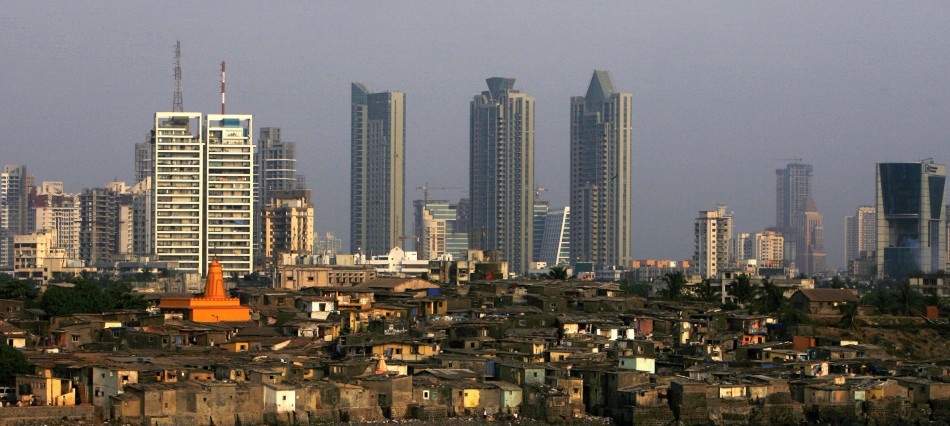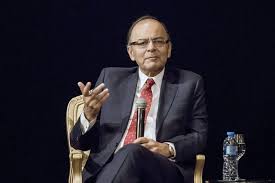
China slowing, India will drive global growth: former Singapore PM
India is a beacon of hope (amid the global slowdown) and has the potential to drive the world economy for the next 10 years, Singapore’s former Prime Minister Goh Chok …
Read MoreGlobal Indian News

India is a beacon of hope (amid the global slowdown) and has the potential to drive the world economy for the next 10 years, Singapore’s former Prime Minister Goh Chok …
Read More
A cautious economic policy, reduced inflation rate, and structural reforms in some areas are helping the Indian economy to grow at 7.8 percent in 2017–18. “Economic growth in India edged …
Read More
The hype surrounding the Union Budget is an Indian oddity given that the document is primarily the Government’s revenue and expenditure statement containing few policy directions. Nevertheless, for the BJP-led …
Read More
Amid the gloom in the global economy, India is set to remain a source of cheer and optimism. The Indian economy will grow at 7.5% in 2016 and 2017 as …
Read More
The world’s top leaders and corporate crème de la crème have descended on the Swiss ski resort of Davos to brainstorm on ways to infuse fresh ballast into the global economy.
Read More
On August 24, India’s stock markets witnessed a Black Monday with the Sensex falling over 1,600 points. Panic did strike the markets and the depreciation of the rupee only added to the worries. India’s Finance Minister Arun Jaitley and Governor of Reserve Bank of India Raghuram Rajan came out to reassure the investors that it is only a temporary pain that India had to endure. Overall, the fundamentals were very strong and the market mayhem was more due to the ongoing economic crisis in China, they said.
In today’s global integrated markets any crisis in any part of the world is likely to impact markets world over. The impact of such a crisis on different markets varies from country to country, based on their exposure to the crisis-hit markets. China has been seeing its stock markets and real economy slump over the past few weeks. And when the world’s second largest economy took a hit and witnessed a steep fall in recent times, it was bound to create panic across the global markets.
China’s surprise move to devaluate its currency sent ripples across markets. The Shanghai Composite Index dropped 8.5 percent that led to sell off in stocks and commodities around the markets in the world. During the 2008 global financial crisis China was seen as a shock absorber and even India did well to weather the crisis at that point of time. Both the countries were cited as examples of resilience to global shocks worldwide.
Read More
Conjuring up a bright picture for the India growth story, the Indian government has projected that the country’s economy will grow at a rate of more than 8 per cent in the 2015-16 fiscal year, while consumer inflation will drop to between 5 and 5.5 per cent.
The Economic Survey report, which was tabled on February 27 in parliament by India’s Finance Minister Arun Jaitley, a day before the NDA-led BJP government’s first full Union Budget, forecast that the Indian economy would grow by 8.1-8.5 per cent under a new calculation method that makes India the world’s fastest growing large economy.
The survey, a big-picture report on the state of Indian economy, also indicated that India can increase public investments and still achieve its borrowing targets.
The survey is clear about the government’s priorities: India needs to stick to its medium-term fiscal deficit target of 3 percent of gross domestic product.

Putting India on the global investment map, Prime Minister Narendra Modi has promised to make the country the “easiest” destination to do business, which would blend a stable tax regime with a predictable, transparent and fair policy environment.
Unveiling immense possibilities the country’s growing economy offers to the world, Mr Modi, with UN Secretary-General Ban ki-Moon and US Secretary of State John Kerry sharing the dais, assured investors that the government will “hold your hands whenever needed.” “If you walk one step, we will walk two steps for you,” the prime minister said at the 7th edition of the ‘Vibrant Gujarat’ summit, a biennial show hosted by the Gujarat government since 2003, which has morphed into a must-attend event for top global companies looking to invest in Gujarat and in India. “This event is perhaps the biggest gathering on earth where a budding entrepreneur has opportunity to see President of the World Bank. We are here as a family, not only in terms of space, but because we recognise that someone’s dream is dependent on someone’s direction. All of us want the planet earth to become a better place to live not only in terms of space, but also because we recognise someone’s dream.”
“India offers you 3Ds – Democracy, Demography and Demand and this is what you are looking for. You will not find all of them (3D’s) together at any other destination of world. We have a large number of hands to work and even a larger number of dreams to be realised,” he said.

The multifarious ties between India and Britain are headed for a marked upswing. Moments after he met India’s Prime Minister Narendra Modi on the sidelines of the G20 summit in Brisbane, British Prime Minister David Cameron tweeted: “Relations with India are at the top of the priorities of UK’s foreign policy.” “Your’s is a very inspiring vision, U.K. wants to partner in any way we can,” Mr Cameron said in another tweet.
The British leader’s enthusiasm seems to be shared across the spectrum in Britain. Soon after the Modi-Cameron meeting, Manish Chand, Editor-in-Chief of India Writes Network (www.indiawrites.org), caught up with UK Parliamentary Under Secretary of State for Energy and Climate Change Baroness Sandip Verma, and found her brimming with enthusiasm about the trajectory of the India-UK relations and the India growth story.
The 55-year-old politician and businesswoman, who has been made a Conservative peer for life, is also a visible emblem of the success of the Indian diaspora in Britain. In this wide-ranging interview with indiawrites.org in New Delhi, the Amritsar-born Sandip Verma speaks about how Britain is eagerly looking forward to offering Prime Minister Modi “exceptional welcome,” the success of the Indian community in Britain and soaring expectations about the India story under the leadership of a reform-minded prime minister.